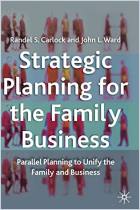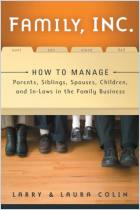加入 getAbstract 阅读摘要

加入 getAbstract 阅读摘要
Manfred F. R. Kets de Vries, Randel S. Carlock and Elizabeth Florent-Treacy
Family Business on the Couch
A Psychological Perspective
Wiley, 2007
看看什么内容?
A serious look at how a family’s emotional dynamic affects its family businesses, no matter how successful.
Recommendation
James Michener begins his novel “Hawaii” with the splitting of a cell. This trio of psychologists doesn’t go that far, but the authors do lay an extensive framework for applying psychoanalytic psychology, systems analysis and family therapy to the family business arena. getAbstract thinks that this serious text may be more of a resource for therapists, counselors and consultants than reading material for people who take only a casual interest in family businesses or who are looking for a quick fix. Authors Manfred Kets de Vries and Randel Carlock, writing with Elizabeth Florent-Treacy, delve deeply into the human dynamics that affect family-run companies, including the psychology of the individuals involved, the characteristics of entrepreneurs and the business family-paradigm. They look closely at human and organizational life cycles, and study how emotional volatility intensifies in times of transition. The authors make generous use of case studies, diagrams and models, and demonstrate how they’ve applied their methodology to advise troubled family businesses.
Summary
About the Authors
Manfred F.R. Kets de Vries is a psychoanalyst, consultant, professor at INSEAD and author of Leaders, Fools and Impostors. Randel S. Carlock’s books include Strategic Planning for the Family Business. Elizabeth Florent-Treacy also works at INSEAD and has written or co-authored several books, including The New Global Leaders.






















Comment on this summary